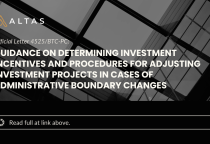Recently, the Politburo (Bộ Chính tri) of the Communist Party of Vietnam has issued a landmark resolution 68-NQ/TW concerning the development of the private economy (“Resolution 68”). The Resolution 68 outlines a vision and key objectives for the private economy through 2030 and with a vision to 2045, aiming for rapid, sustainable, and high-quality growth, positioning it as a driving force for the national economy and a leader in technological advancement and digital transformation. To achieve this, it proposes a suite of solutions focusing on reforming institutions, ensuring fair access to resources, fostering technological adoption, strengthening linkages between businesses, supporting small and medium enterprises, promoting business ethics, and enhancing leadership and implementation.
A/ How does government policy intend to overcome obstacles hindering private economic growth?
Under Resolution 68, the relationship between the state and the private economic sector in Vietnam is being redefined with the goal of fostering strong and sustainable development. This redefinition involves fundamental shifts in perception, the state's role, policy frameworks, and interaction mechanisms:
-
Shift in Perception and Role: There is a call to thoroughly eliminate prejudices towards the Vietnamese private economic sector and correctly evaluate its important role for national development. The state is transitioning from primarily administrative management and control to an "enabling" and "serving" role.
-
Building Trust and Partnership: The relationship between the government and enterprises should be open, friendly, accompanying, and ethically serving.
-
Creating a Conducive Business Environment: The state will reduce and eliminate administrative barriers, the "ask-give" mechanism, and the "can't manage, so ban" mentality.
-
Ensuring Equal Access and Fair Treatment: The state will ensure the private sector competes equally with other economic components in accessing business opportunities and resources such as capital, land, technology, human resources, and data. Tax policies will be reviewed and improved to ensure fair treatment among economic components, reduce rates, and expand the tax base. Abuse of administrative decisions and local protectionism will be strictly prohibited.
-
Protecting Rights and Interests: The state will effectively ensure and protect the rights of ownership, property rights, freedom of business, and equal competition for the private economic sector, as well as guarantee contract enforcement. This includes improving the legal system for contract enforcement, dispute resolution, and protection of intellectual property rights.
-
Reducing Administrative Burden and Improving Transparency: Significant reforms are planned to improve the quality of institutions and policies, making them consistent, stable, transparent, and easy to comply with. This includes digitalizing, automating, and applying AI/big data to administrative procedures. The target is to cut administrative processing time and compliance costs significantly by 2025 and continue reductions thereafter. Overlapping and unnecessary inspections will be ended, generally limiting them to once a year unless there is clear evidence of violation. Strict handling of corruption, personal gain, and harassment by officials is emphasized.
-
Prioritizing Support for Strategic Development: The state will have special mechanisms and policies to encourage private sector development in priority areas, research and development, technology application, innovation, digital transformation, and participation in important national tasks. Specific support is planned for small and medium-sized enterprises (SMEs), including tax exemptions and allocation of budget resources. The state will also proactively implement policies to encourage the private sector to participate in strategic national projects and important research tasks.
-
Clarifying Responsibility and Handling Violations: The principle of clearly distinguishing criminal responsibility from administrative and civil responsibility will be followed when handling violations. In economic and civil cases, priority will be given to civil, economic, and administrative measures first, allowing enterprises and entrepreneurs to proactively remedy mistakes and damages. Criminal prosecution will be avoided if the situation can be handled non-criminally. The principle of presumption of innocence is to be ensured in investigations and trials.
B/ What legal frameworks are proposed for new economic models?
Accordingly, several legal frameworks and mechanisms are proposed to support new economic models:
-
There is a proposal to complete the legal framework for new economic models, particularly those based on technology and digital platforms. This includes areas like financial technology, artificial intelligence, virtual assets, virtual currency, tokenized assets, tokenized currency, and e-commerce.
-
A key proposed mechanism is the implementation of a controlled trial legal framework, often referred to as a "sandbox," for new technologies, products, services, and new business models. This sandbox approach is intended to operate based on post-inspection and in accordance with international practices.
-
Specific controlled trial legal frameworks are mentioned for peer-to-peer lending and crowdfunding transactions. These are intended to directly connect small and medium-sized enterprises (SMEs) with individuals and organizations providing capital.
-
The legal framework and policies regarding data and data governance are also to be completed and improved. This aims to create favorable conditions for enterprises to connect, share, and exploit data, while ensuring security and safety.
-
The core principle is that when handling mistakes and cases related to civil and economic matters, priority should be given to applying civil, economic, and administrative measures first.This approach is intended to allow enterprises and entrepreneurs to proactively remedy mistakes and damages.
-
Importantly, the Resolution 68 states that if the practical application of the law presents a situation where processing could either be criminal or non-criminal, there should be a resolute decision not to apply criminal processing.
-
Even in cases where criminal processing becomes necessary, priority is given to economic consequences and remedies first, and these are considered important bases for determining subsequent processing measures.
-
The legal framework is also to ensure that legal provisions are not applied retroactively to the disadvantage of enterprises.
-
Furthermore, for cases lacking sufficient or clear evidence, the source mandates reaching a conclusion early to avoid negatively impacting the reputation and normal business operations of enterprises and entrepreneurs.
-
The principle of presumption of innocence is to be ensured during the investigation and trial processes.
In essence, the proposed legal shift aims to de-emphasize criminalization of economic activities where possible, focusing instead on remedial measures and utilizing civil and administrative tools to correct errors and address damages, thereby creating a more predictable and less punitive environment for enterprises.
C/ How ALTAS Can Assist You:
ALTAS LAW is uniquely positioned to assist your business in navigating these complex administrative reforms. We offer a comprehensive suite of legal and business services designed to provide seamless support during this transition period:
-
Accounting and Tax Services: We also offer accounting and tax services to help your business manage the financial implications of these reforms, including tax planning, reporting, and compliance.
-
Licensing & Regulatory Compliance: We will meticulously review your existing licenses and permits, advise on necessary amendments or renewals, and guide you through the process of obtaining any new approvals. Our team will also ensure your compliance with all relevant regulatory changes.
Please feel free to reach us via email contact@altas.vn to discuss your specific concerns and explore how we can partner with you to navigate these reforms successfully.
---
Written by: Mr. Luong Van Chuong (Chris) – Partner Lawyer at ALTAS Law & Mrs. Nguyen Nhac Thien An (Dorothy) – Managing Director at ALTAS Accounting
Date: May 8, 2025










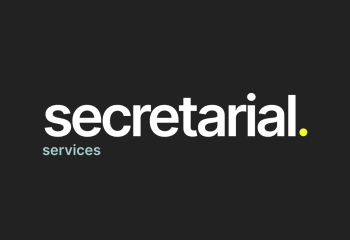
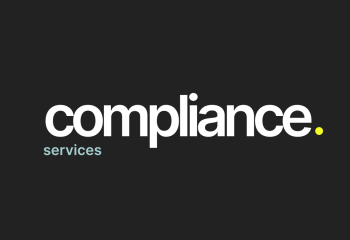




![[LEGAL UPDATE] Voluntary Tax Correction Without Penalties: A Game-Changer in Vietnam’s Tax Administration [LEGAL UPDATE] Voluntary Tax Correction Without Penalties: A Game-Changer in Vietnam’s Tax Administration](thumbs/210x144x1/upload/news/legal-update-j-jan2025-11-9753.png)


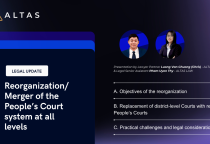

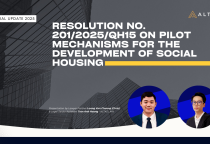

![[LEGAL UPDATE] An Introduction to Vietnam's New Banking Sandbox Mechanism: Decree 94/2025/NĐ-CP [LEGAL UPDATE] An Introduction to Vietnam's New Banking Sandbox Mechanism: Decree 94/2025/NĐ-CP](thumbs/210x144x1/upload/news/legal-update-j-jan2025-2-8926.png)

